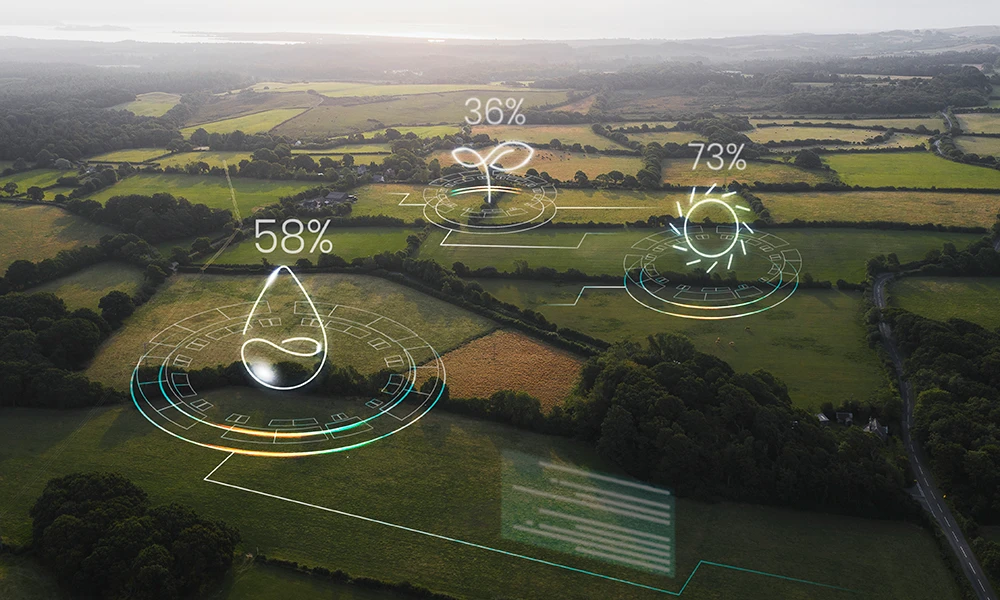Nurturing Sustainability: The Essence of Climate-Smart Agriculture
Category: Smart Agriculture Technologies
In the face of escalating climate challenges, agriculture stands at the forefront of innovation, ushering in a new era defined by resilience and sustainability. Climate-Smart Agriculture (CSA) emerges as the guiding philosophy, presenting a holistic approach that not only mitigates the impacts of climate change but also transforms farming practices into a force for environmental stewardship. This article explores the essence of Climate-Smart Agriculture, examining how it integrates cutting-edge technologies, adaptive strategies, and a commitment to sustainability to cultivate a resilient and productive future for global agriculture.
1. Sustainable Intensification: Balancing Yield and Environmental Impact
- The foundation of Climate-Smart Agriculture lies in sustainable intensification—increasing agricultural productivity while minimizing environmental impact. This section delves into how CSA integrates practices such as precision farming, agroforestry, and organic farming to optimize resource use, reduce greenhouse gas emissions, and enhance overall farm efficiency. The goal is to produce more with less, ensuring long-term food security without compromising the health of the planet.
2. Resilient Crop Varieties: Adapting to Changing Climate Conditions
- Climate-Smart Agriculture prioritizes the cultivation of resilient crop varieties capable of withstanding the challenges posed by climate change. This heading explores how CSA promotes the development and adoption of drought-resistant, heat-tolerant, and disease-resistant crops. By investing in research and breeding programs, farmers can ensure crop diversity and adaptability, safeguarding against the unpredictability of changing climate patterns.
3. Precision Water Management: Mitigating Water Scarcity through Technology
- Water scarcity is a pressing concern in agriculture, and CSA addresses this challenge through precision water management. This section delves into how technologies such as sensor-based irrigation, drip irrigation, and soil moisture monitoring enable farmers to optimize water usage. CSA ensures that water is applied where and when it is needed most, minimizing wastage, enhancing crop yields, and contributing to sustainable water management.
4. Conservation Agriculture: Preserving Soil Health for Future Generations
- Preserving soil health is central to the principles of Climate-Smart Agriculture. This heading explores how CSA promotes conservation agriculture practices such as minimal tillage, cover cropping, and agroecological approaches. These practices enhance soil structure, reduce erosion, and promote biodiversity, ensuring the long-term fertility and resilience of agricultural landscapes.
5. Climate Information Services: Empowering Farmers with Knowledge
- Climate-Smart Agriculture harnesses the power of climate information services to empower farmers with knowledge. This section explores how advanced weather forecasting, satellite imagery, and digital platforms provide farmers with real-time information on climate patterns. Armed with this knowledge, farmers can make informed decisions on planting, harvesting, and resource management, adapting to the dynamic conditions of a changing climate.
CASE STUDIES
Case Study 1: The Sustainable Rice Platform (SRP) in Vietnam
Overview:
- The Sustainable Rice Platform (SRP) is a global alliance working towards promoting climate-smart and sustainable rice production. One of its successful implementations is in Vietnam.
Implementation:
- In Vietnam, the SRP introduced a set of climate-smart practices, including the System of Rice Intensification (SRI) and precision water management. Farmers were trained in these practices, emphasizing reduced water usage, direct seeding, and organic inputs. The SRP also incorporated climate information services to provide farmers with real-time weather updates, allowing them to adjust their farming practices based on changing conditions..
Results:
- Farmers adopting SRP practices in Vietnam reported increased rice yields, reduced water usage, and improved soil health. The implementation showcased how a holistic approach to climate-smart agriculture, incorporating sustainable intensification, water management, and knowledge dissemination, can lead to positive outcomes for both farmers and the environment.
Case Study 2: Conservation Agriculture in Zambia
Overview:
- Zambia has embraced Conservation Agriculture (CA) as part of its climate-smart agriculture strategy, focusing on sustainable soil management and water conservation.
Implementation:
- Farmers in Zambia were trained in CA practices, including minimal tillage, cover cropping, and crop rotation. The adoption of these practices aimed to enhance soil structure, reduce erosion, and conserve water. Additionally, climate information services were integrated to provide farmers with timely weather forecasts, helping them plan their planting and harvesting activities in alignment with changing climatic conditions.
Results:
- The implementation of Conservation Agriculture in Zambia led to improved soil health, reduced water runoff, and increased resilience to climate variability. Farmers reported higher yields and enhanced food security, showcasing the potential of climate-smart practices to transform agriculture in regions vulnerable to climate change. The success of the program demonstrates the adaptability and effectiveness of climate-smart agriculture strategies in diverse agricultural landscapes

